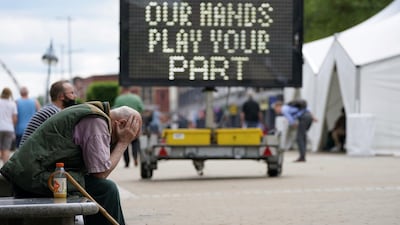Cases of the Indian variant of coronavirus are doubling every four and a half days in parts of England, raising fears the end of restrictions later this month will be delayed.
Public Health England said on Friday that 42,323 cases of the strain, also known as the Delta variant, had been confirmed in the UK, up from 29,892 cases on June 2.
Authorities said growth rates were high in all parts of the country, but in the worst-affected areas, in northern England, cases were doubling every 4.5 days.
Every nine in 10 cases is the new strain.
New research suggests the variant is about 60 per cent more infectious than the strain first detected in Kent, south-east England, now known as Alpha.
The Alpha variant caused a surge of Covid cases in December before the mass vaccine campaign began, leading to a three-month lockdown as hospitals were stretched to near-capacity.
The government has since stepped up its vaccine drive, and has administered about 41 million first doses and about 29 million second doses to adults over 25.
According to government data, 77 per cent of the adult population has received one dose, while 54 per cent are fully vaccinated with both doses.
But cases are rising again. The UK reported 8,125 new Covid cases in the past 24 hours, the highest daily tally since February. It compares with 6,238 cases last Friday.
Seventeen deaths were recorded.
In a sign the government is considering delaying the end of social distancing restrictions on June 21, Vaccines Minister Nadhim Zahawi said on Friday “hard-won battles against the virus” were under threat.
“The virus hasn’t gone away, it will attempt to survive by mutating,” he told the BBC.
“Let’s not squander those hard-fought gains.”
But the number of patients in hospital remains low, at about 1,000 on Thursday, and Health Secretary Matt Hancock has said most patients are unvaccinated.
The government said this suggested inoculation is “breaking the link” between infection and death.
Jenny Harries, chief executive of the UK Health Security Agency, said “two doses provide significantly more protection” against the Delta variant than one.
On Friday, Jim McManus, from the Association of Directors of Public Health, said “several pieces of data” about the rise of cases were concerning.
“Investing a bit of time is really important for enabling the vaccine programme to finish and do its job,” he said.
“That’s four weeks of keeping some of the stuff we have now, like social distancing, face masks and some other measures. We’re not talking about new restrictions and going backwards, we’re talking about going forwards but very slowly.”

